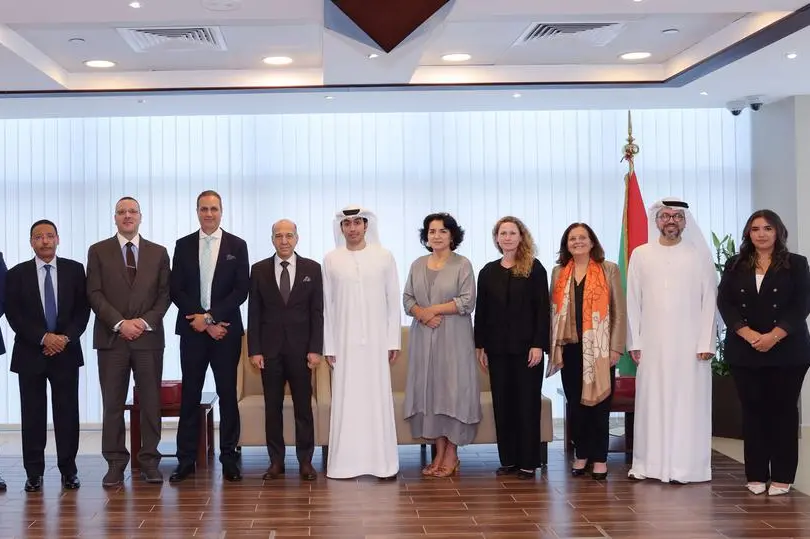PHOTO
The Judicial Department in Abu Dhabi welcomed a delegation from the Abu Dhabi International Arbitration Center and discussed ways to enhance cooperation and integration in areas of common interest to strengthen the foundations of justice and the rule of law, contributing to reinforcing Abu Dhabi's position as a regional and global destination for commercial and government dispute resolution and supporting its attractiveness for foreign investments.
The visit comes in line with the directives of His Highness Sheikh Mansour bin Zayed Al Nahyan, Vice President of the UAE, Deputy Prime Minister, Chairman of Presidential Court and Chairman of the Abu Dhabi Judicial Department to enhance cooperation and exchange of expertise with local and international entities, ultimately leading to the application of best practices globally, enhancing the emirate's competitiveness on the international level.
During the visit, both sides explored ways to strengthen their strategic partnership and improve collaboration in helping to find different approaches to settle commercial and governmental disputes presented to the Center at the local, regional, or international level, in order to improve the advanced, fair, and balanced environment for dispute resolution.
The visiting delegation was briefed on the leading role played by the Department in promoting the dissemination of alternative dispute resolution culture as part of its efforts to apply best practices and innovative methods that adhere to the highest quality standards, in order to reach reconciliation and amicable settlements for disputes of all types, civil, commercial, and real estate, without resorting to the competent courts.
The delegation learned about the important role of the Abu Dhabi Commercial Court in improving the economy and helping it stay competitive, thanks to its skilled team of experts from both local and international backgrounds who handle cases related to investments and businesses, as well as resolve disputes among business owners, ensuring expedited resolution of cases and reflecting the quality and consistency of judicial decisions, which in turn promotes sustainable economic growth.


















